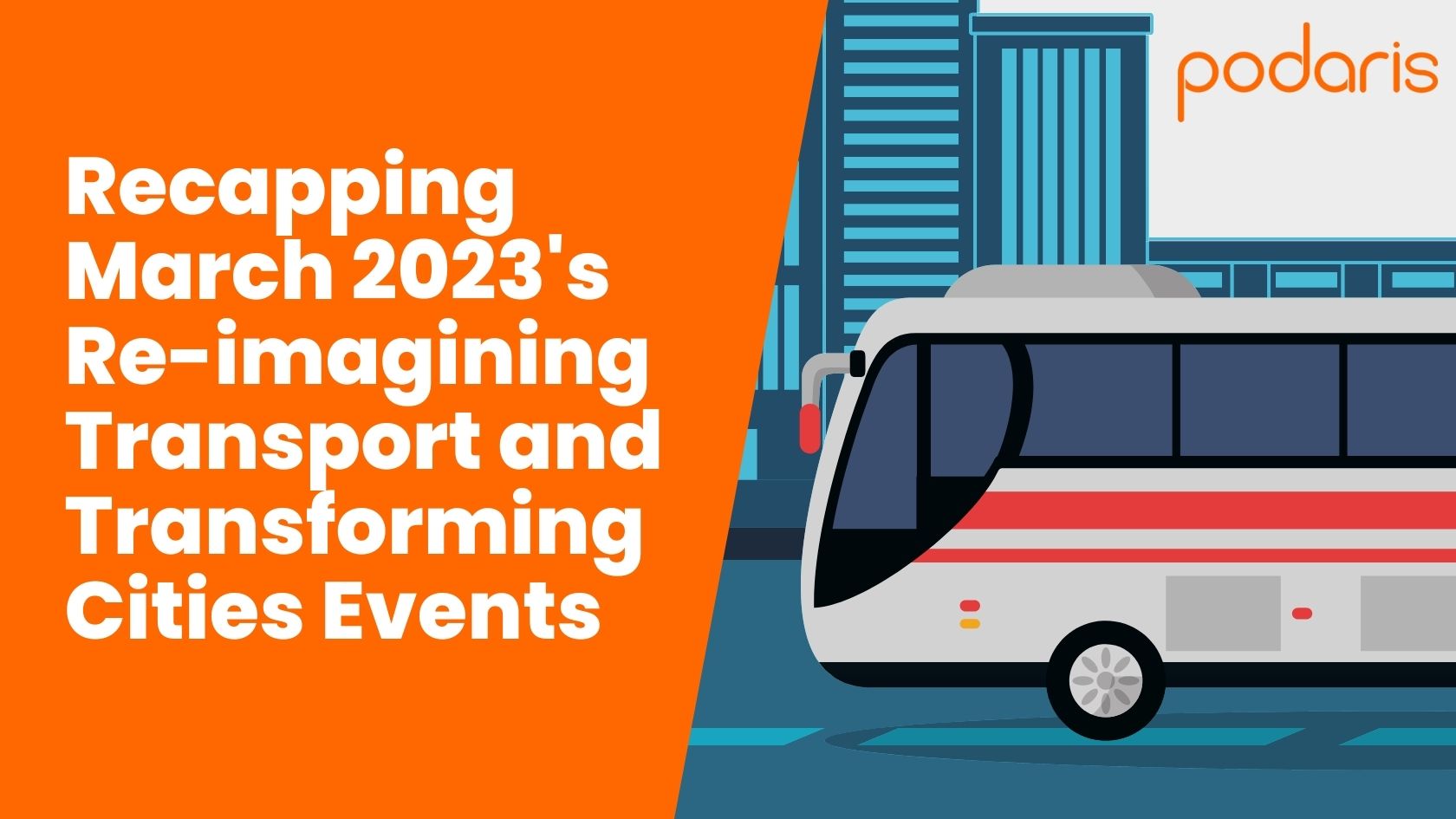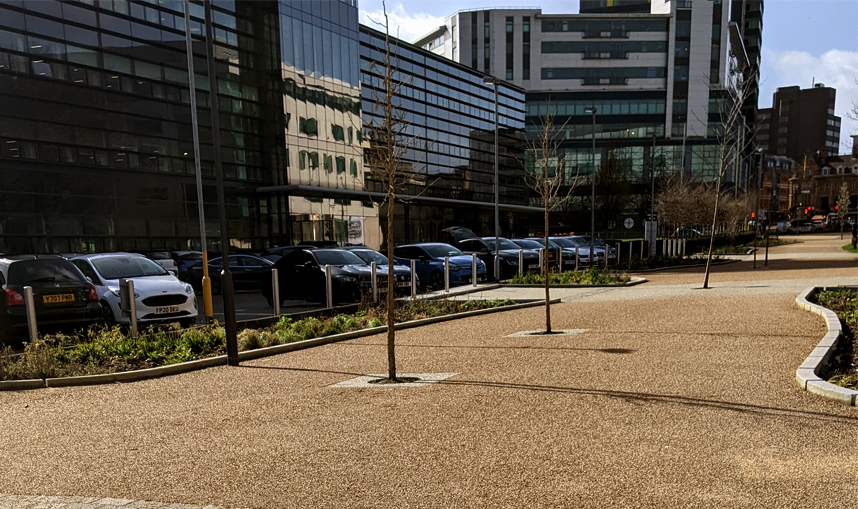
This March, Rajinder Sharma, Partnerships and Business Development Manager attended UK based Landor LINKS Live events in Coventry and Leicester. The first, ‘Re-imagining Transport’ was a conference hosted by Transport for West Midlands (TfWM) at the University of Warwick. The two day event showcased how TfWM is improving accessibility, reducing traffic and electrifying transport through its new Local Transport Plan (LTP). TfWM shared their views and hope to find new collaborators for its innovation journey with an emphasis on the six ‘Big Moves’, comprised of:
- Behaviour Change
- Accessible & Inclusive Places
- Safe, Efficient & Reliable Network
- Walk, Wheel, Cycle & Scoot
- Public Transport & Shared Mobility and
- Green Transport Revolution.
There were keynote addresses from Mark Corbin, Director of Network Resilience at TfWM who highlighted the importance of mobility hubs to spearhead innovation to the West Midlands local transport system and from Anthony Ferguson, DfT Deputy Director for Traffic and Technology emphasising the Future Transport Zone and its influence on helping shape our thinking in the future transport space.
David Harris, Transport Strategy & Place Manager for TFWM talked about the need for a different approach for Local Transport Plans (LTPs). This had to take into account the aftermath of Covid, climate change and the cost of living. He suggested that a new approach was needed, as 85% of travel was not to key centres, there were not as many commuters and 63% of trips were still by car. This involved improving accessibility, reducing traffic and incorporating e-transport which could make 45 min regions and 15 min neighbourhoods more of a reality.
The Local Transport Plans would need to include behaviour change, more accessible places, walking/cycling and e-scooters, more public transport/shared mobility, reliable transport and green transport. This could be made possible with new transport concepts such as Mobility Hubs, Very Light Rail (VLR), Mobility as a Service (MaaS), Drones and DRT. Continued research & investment, funding and new legislation would also be helpful. A new area strategy is to be developed in 2023.
Steve Hayes, Head of Network Transformation at TFWM alluded to what role DRT could play in the bus landscape and how best to incorporate this type of service. Primary bus services cannot cover the whole network. The aim of DRT is to supplement the gaps in the network as primary bus journeys cannot cover the whole area. Taking this into account, as well as the need to reduce car journeys and merge the previous ‘Ring and Ride’ service with the new DRT service, TfWM have created a new rebranded service in Coventry called ‘West Midlands on Demand’.
Nicola Small, Senior Programme Manager for Coventry Very Light Rail (VLR) discussed the future of new modes such as VLR within Coventry. She emphasised the affordability of VLR (£10m/km versus £25m/km for light rail) and said that such modes need to integrate existing technologies. A city demonstrator would be launched in 2024/25. In the meantime, other cities such as Leeds, Liverpool, Derby and Stoke are keenly watching the development of Coventry VLR. In addition, there has been international interest from Canada, India, Australia and New Zealand.
Transforming Cities 2023
Later in March, Rajinder attended the Transforming Cities event hosted by Leicester City Council. The aim of the conference was to showcase how leading cities are demonstrating best practice in successfully managing key challenges. Speakers explored a city-based approach to the design, delivery and management of regeneration schemes, discussing innovative funding mechanisms and strategies for avoiding generic regeneration and clone cities.
From a transport perspective, the value of integrated and accessible multi-transport links was highlighted. The City of Leicester has built new infrastructure around the city centre to promote active travel. Keynote presentations were given by Jenny Thomas, Head of Built Environment, Department of Levelling Up, Homes and Communities; Andrew Smith, Director of Planning, Development and Transportation, Leicester City Council; Nicholas Boys Smith, Chair, Office for Place and Founding Director, Create Streets; and Chris Harrison, Regional Director, Project Centre.

Active travel infrastructure in Leicester
After lunch, there were several transport-focused breakout sessions, including one on Managing Future Mobility, which was chaired by Janet Hudson, Behaviour Change Manager at Leicester City Council. Matthew Ledbury, Senior Policy & Advocacy Officer at CoMoUK, later spoke on the importance of shared mobility and highlighted how bike share motivates people to take up cycling. Nine per cent of users have bought a bike since joining the scheme. Matthew also noted that there are now 31 e-scooter trails across 50 areas and that there has been an increase in Demand-responsive Transport (DRT). He also noted that shared transport is currently underrepresented in the transport strategies and delivery plans of local authorities.
Matthew argued that the new Local Transport Plans (LTP) plans should actively support shared transport as part of a mix of shared active, public and community transport under the new LTP guidance. Silviya Barrett, Director of Policy and Research at the Campaign for Better Transport, said in her presentation that there was much local authorities could do to improve fairer use of transport infrastructure, such as car clubs, 15-minute cities, cycle lanes, bus support and EV charging.
Dan Pearman, City Transport Director, chaired a session on Building in Vitality & Viability. Alex Walton, Director at Arcadis, spoke about the Transport Strategy Optimiser tool that they are trialling with Birmingham City Council. This tool helps identify the appropriate investment priorities for each client based on their complex challenges and their unique budgetary constraints, and turns that plan into action for transport planning.
David Miller, Deputy Director of Create Streets, in his presentation on Rethinking Funding Policies to support place, discussed the close links between transport, land use and digital connectivity, noting that “transport is urban design and urban design is transport” and that the importance of transport cannot be underestimated. Of the £7.5bn allocated to local authorities, approximately 29% of their capital expenditure is devoted to highways and transport services.